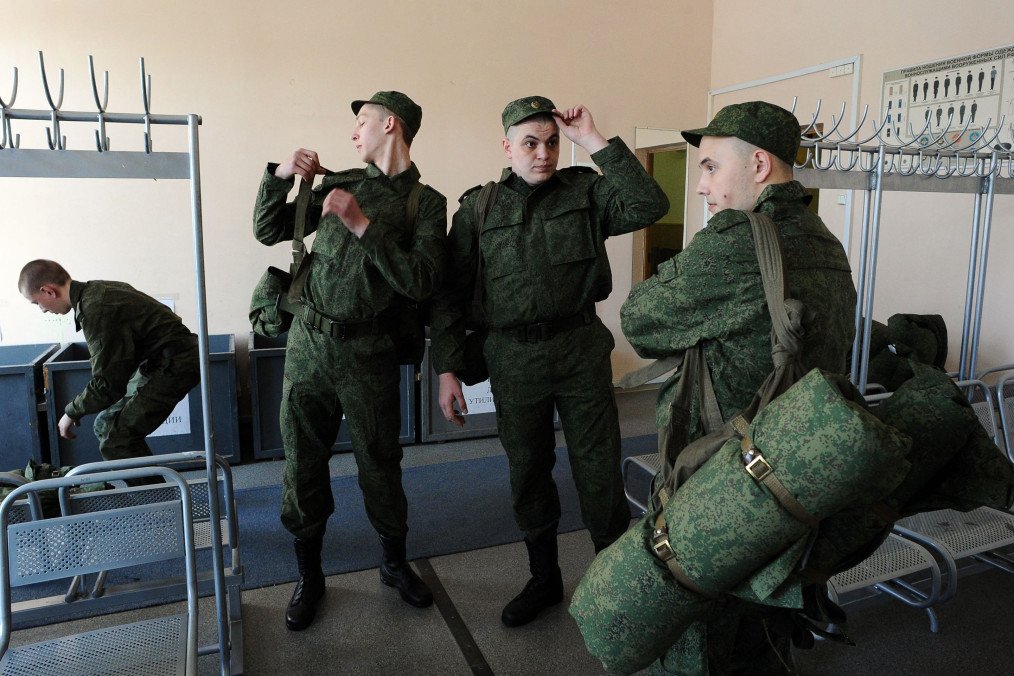In an effort to strengthen its forces in Ukraine amid mounting battlefield losses, Russian authorities are reportedly resorting to increasingly aggressive recruitment tactics, including intimidation, deceit, and threats against job seekers and conscripts, according to an investigation by Russian outlet Kholod on November 12.
Rights advocates allege that the Russian Ministry of Defense is resorting to coercive tactics: tricking job applicants into signing military contracts, forcing detainees to enlist, threatening criminal investigations and drug planting, as well as pushing conscripts toward the front lines.
Cases of threats and intimidation against conscripts
One case involved a man, who served a sentence in prison for drug trafficking. After that, with the start of the Russian invasion of Ukraine, he got conscription notice, which forced him to move out of his city and change his home location. Later, a future conscript was reportedly detained under suspicious circumstances and driven for days to Rostov, where he was pressured to enlist under threat of drug planting, saying “either you sign a contract now or a bag of drugs will end up in your pocket,” he told Kholod.
In another instance, conscripts in Chelyabinsk reported threats of imminent deployment to the dangerous Belgorod region if they refused to sign contracts.
The mother of one of the 18-year-old conscripts recounted, “They were told they will return as cargo 200 (military slang for fallen soldiers) in case of not signing the contract with the Russian Ministry of Defense,” with superiors allegedly describing grim fates for those who refused to comply.
Those who refused were locked in the barracks and forced to watch Russian war movies, she added.
Russian recruitment tactics target job seekers
One alleged strategy is the use of deceptive job postings, which omit any indication that the role involves military service. Prospective hires are reportedly invited to military bases under the guise of non-military roles, such as drone assembly engineer positions, only to be pressured into enlisting.
Ivan Chuvilyayev, a representative from the Russian advocacy project Idite Lesom, described the approach as: “People are told everything will be fine, they’re just needed for harmless work. But then, instead of a job offer, they’re handed a contract with the Ministry of Defense. Once it’s signed, they’re sent to the front.”
Prisoners and detainees pressured to enlist
The Ministry of Defense is also allegedly recruiting prisoners and those facing legal charges. In exchange for signing military contracts, detainees are reportedly offered leniency, while others are coerced under threat of additional criminal charges.

Volunteer battalions near the Ukrainian border
In bordering regions, locals are being encouraged to join volunteer units named BARS in Belgorod, Kursk, and Bryansk regions.
These battalions, originally promoted as civil defense forces, purportedly help with local evacuations, guard posts, and anti-drone operations. However, recruits are signing standard military contracts, which could see them deployed in active combat zones at any moment.
Earlier, In temporarily occupied areas of Luhansk, high school students were encouraged to sign contracts with the Russian military, with promises of financial compensation and social benefits


-11b58f58a83d9b0f8fe40066449b041e.jpeg)





-72b63a4e0c8c475ad81fe3eed3f63729.jpeg)